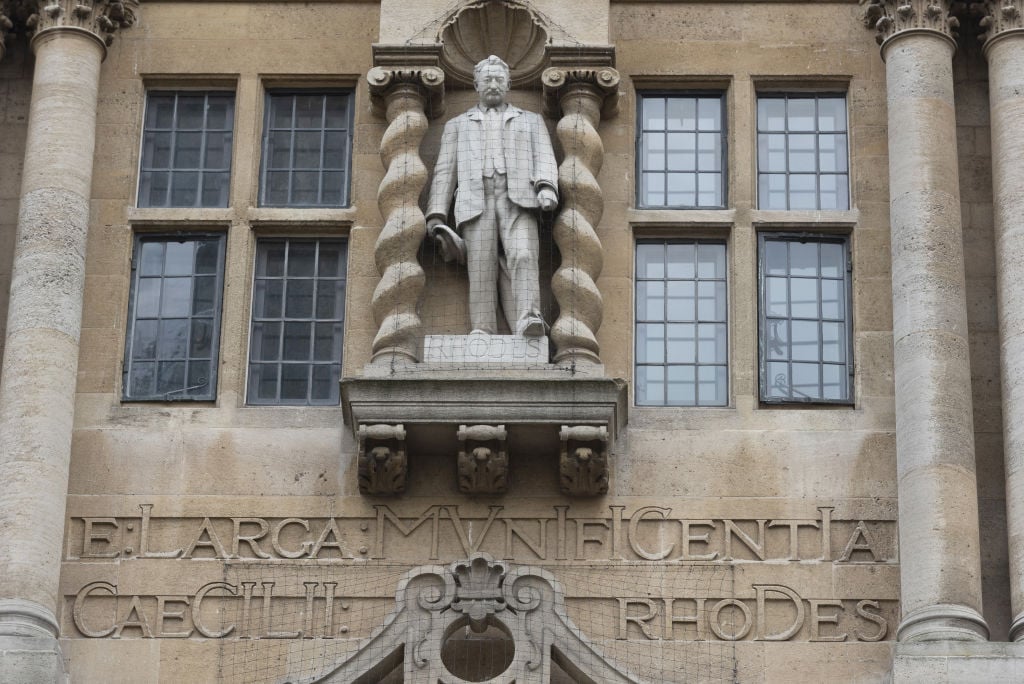
An Oxford University college has voted to remove its controversial statue of Victorian imperialist Cecil Rhodes following mass demonstrations campaigning to take it down.
Cecil Rhodes believed in the primacy of the white race and helped Britain colonize much of southern Africa. Oriel College’s decision is the culmination of years of pressure from groups declaring that “Rhodes Must Fall.” Protests outside the college had ramped up in the past two weeks amid a wider public debate about monuments to racist historical figures, and the recent Black Lives Matter demonstrations across the UK.
But this isn’t the end of the conversation. While the college’s governing body says in a statement that they have “expressed their wish” to remove the statue, they are setting up an independent commission to manage that process and “the issue of the Rhodes legacy,” as well as to improve access and attendance of Black, Asian, and ethnic minority students and faculty.
A spokeswoman for the college tells Artnet News that the commission will determine the next steps, including when the statue will be removed, and where it will be placed. “We hope to be in a position to reveal more details about the commission, its terms of reference and members over the coming weeks,” the spokeswoman says. The statement from the governing body says that the commission will report back by the end of the year.
Demonstrators hold placards during a protest arranged by the “Rhodes Must Fall” campaign, calling for the removal of a statue of British businessman and imperialist Cecil John Rhodes, from outside Oriel College at the University of Oxford. Photo by Adrian Dennis/AFP via Getty Images.
“I welcome the news that Oriel College have come to the view that they would like the statue and plaque of Cecil Rhodes to be removed,” the leader of Oxford City Council, Susan Brown, says in a statement, adding that the city council will accept an early application for planning permission to remove the sculpture from the façade of the Grade II-listed building.
“Oriel’s formal review into the issues surrounding the statue and how to take forward the college’s commitment to diversity will be an opportunity for everyone to have their say on where this statue will best be curated in the future,” Brown says. The council head had previously suggested the Ashmolean Museum of Oxford as a suitable place to display the statue.
Last week, the university’s network of Black and minority ethnic staff expressed solidarity with the campaign to remove the sculpture, as well as address other ways the university can decolonize its built landscape, social structure, and curriculum. The network wrote a letter to the university’s vice chancellor asking for concrete steps to address these points including increasing diversity and reforming the curriculum towards more inclusive content. The university will be giving a formal reply in due course.